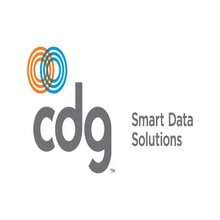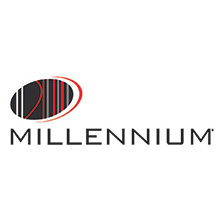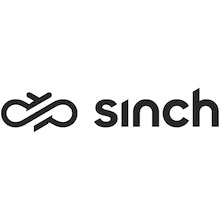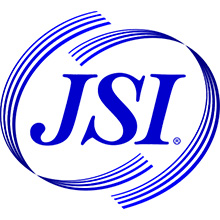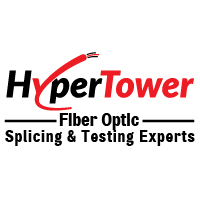|
2022 End of Session Report & Legislative Synopsis of Bills - download here
The Illinois General Assembly completed its truncated spring legislative session around 6:00 a.m., Saturday, April 9th. They passed a $46.5 billion budget for the 2023 fiscal year beginning July 1st. The budget includes approximately $500 million for broadband infrastructure grants. None of the bills the IBTA and industry partners opposed were approved by the Legislature. A few key issues for our industry were both introduced and resolved in the final days of session.
Bills Passed by Both Chambers:
The following bills affecting the broadband and telecom industry were approved by both chambers of the legislature for Governor Pritzker’s review:
Extension of Prohibition against Electric Utilities Providing Broadband Service to their Retail Customers
SB 3866 – Energy Trailer Bill (extends electric utility broadband prohibition)
The current prohibition against investor-owned electric utilities from providing broadband service to their retail customers was scheduled to expire December 31st, 2022. Senate Bill 3866 was passed to address issues from last year’s clean energy transition legislation extended the prohibition for Ameren and ComEd from using their electric smart grid infrastructure and communications network to provide broadband service to their retail customers until Dec. 31st, 2027.
Broadband Infrastructure Advancement Act
HB 4700 – Budget Implementation Act (includes Broadband Infrastructure Advancement Act)
Signed by Gov. Pritzker 4/19-2022 – Public Act 102-0699
Language was added to the Budget Implementation Act, House Bill 4700, establishing the Broadband Infrastructure Advancement Act. It gives the Legislative Budget Oversight Commission authority to advise, and review planned expenditures of state and federal grants for broadband projects. The Act is intended to be construed in compliance and consistent with the Infrastructure Investment and Jobs Act (IIJA) and all regulations, rules, guidance, forms, instructions, and publications issued thereunder. In any instance in which the Broadband Infrastructure Advancement Act conflicts with such regulations, rules, guidance, forms, instructions, or publications, the federal law and rules will prevail. This language giving the IIJA precedent over state laws and rules ensures federal broadband funding is not jeopardized.
The Broadband Infrastructure Advancement Act specifically requires the Office of Broadband to provide all applications, plans, responses, and related materials describing the state’s plan for distributing Broadband Equity, Access, and Deployment (BEAD) program funds to the Legislative Budget Oversight Commission for review at least 30 days prior to submission to the federal agency overseeing the program. The Governor or Office of Broadband must consider comments and suggestions provided by members of the Legislative Budget Oversight Commission and members of the public. DCEO, the Office of Broadband, or any other state agency appropriated funding to provide broadband grants must establish program eligibility and selection criteria by administrative rules. DCEO has authority to promulgate emergency rules for the Connect Illinois broadband grant program.
State Budget:
HB 900 – Fiscal Year 2022 Budget (includes $500 million for broadband grants)
Signed by Gov. Pritzker 4/19-2022 – Public Act 102-0698
Broadband Funds in the Fiscal Year 2023 Budget
The Fiscal Year 2023 state budget, House Bill 900, appropriates $46.5 Billion for the upcoming fiscal year, which begins July 1st. Here are the key broadband funds appropriated in the state budget:
Connect Illinois Broadband Grants:
$ 3,414,314 Reappropriation to Connect Illinois
$ 92,456,622 Reappropriation to Connect Illinois
$ 300,000,000 Reappropriation to Connect Illinois – American Rescue Plan Act (ARPA)
$ 100,000,000 Initial Broadband Grant Funds for all States through IIJA (BEAD)
$ 495,870,936 TOTAL
9-1-1:
HB 5502 – 9-1-1 Telephone System-Various
Synopsis As Introduced Amends the Emergency Telephone System Act. Provides that adds several definitions and modifies a definition. Modifies provisions relating to private residential switch services to indicate that such services and MLTS 9-1-1 services installed, managed, or operated before February 16, 2020 shall ensure that the system is connected to the public switched telephone network such that calls to 9-1-1 route to the appropriate 9-1-1 jurisdiction and makes other changes. Adds provisions relating to private business switch or MLTS 9-1-1 service installed, managed, or operated after June 30, 2000 (or within 18 months after enhanced 9-1-1 or NG9-1-1 service becomes available) requiring such systems to assure that the system is connected to the public switched network such that calls to 9-1-1 route to the appropriate 9-1-1 jurisdiction with the proper ANI and ALI, and includes other requirements relating to the square footage of a workspace. Adds provisions relating to requirements for covered MLTS and dispatchable location compliance dates for covered MLTS. Repeals provisions relating to 9-1-1 service and 9-1-1 business service. Makes other changes. Effective immediately.
Bills Not Approved:
Broadband & Telecommunications Legislation:
HB 3271 – Telephonic Solicitation
Synopsis As Introduced
Amends the Criminal Code of 2012. Provides that it is a crime to engage in telephonic solicitation of a person who is 65 years of age or older. Defines "telephonic solicitation".
HB 4282 – Utilities-Internet Speeds - Oppose
Synopsis As Introduced
Amends the Public Utilities Act. Provides that every telecommunications carrier with more than 10,000 customers and every Incumbent Local Exchange Carrier (rather than every Incumbent Local Exchange Carrier) shall offer or provide advanced telecommunications services to not less than 90% of its customers by December 31, 2023 (rather than 80% of its customers by January 1, 2005). Removes provisions authorizing the Illinois Commerce Commission to grant a full or partial waiver of specified requirements. Provides that if the holder of a State-issued authorization is using telecommunications facilities to provide cable or video service and has more than 1,000,000 telecommunications access lines in this State, the holder shall provide access to its cable or video service to a number of households equal to at least 90% (rather than 35%) of the households in the holder's telecommunications service area in the State by December 31, 2023 (rather than within 3 years after the date a holder receives a State-issued authorization from the Commission). Provides that the holder of a State-issued authorization shall provide wireline broadband service capable of supporting, in at least one direction, a speed in excess of 1,000 megabits per second (rather than 200 kilobits per second), to the network demarcation point at the subscriber's premises, to a number of households equal to 90% of the households in the holder's telecommunications service area by December 31, 2023 (rather than December 31, 2008). Removes provisions concerning investigations into or complaint alleging that the holder of a State-issued authorization has failed to meet specified requirements. Makes changes to definitions. Amends the Broadband Advisory Council Act to make conforming changes.
HB 4758 – Broadband Access Act - Oppose
Synopsis As Introduced
Creates the Illinois Broadband Deployment, Equity, Access, and Affordability Act of 2022. Provides that access to affordable, reliable, high-speed broadband service is essential to full participation in modern life in the State and throughout the United States. Defines terms. Provides that the Department of Commerce and Economic Opportunity shall establish and implement a statewide broadband service grant program. Provides that the Department shall use money from the grant program only for the exclusive purpose of awarding grants to applicants for projects that are limited to the construction and deployment of broadband service into unserved areas in the State and for the Department's cost to administer the program. Provides that the Department shall not award grant money to a governmental entity or educational institution. Provides that the Department shall not, as a condition of an award of grant money, impose an open network architecture requirement, rate regulation, or other term or condition of service that differs from the applicant's terms or conditions of service in its other service areas. Includes provisions providing for the criteria for determining the award of funds, the information an applicant must provide for an application for a grant, the priority by which the Department shall follow in granting awards, and when the Department shall not award a grant to an applicant. Provides that when a grant is awarded, the Department shall provide notice on its website of each application receiving a grant. Provides that the Department shall require an applicant awarded a grant to submit a semi-annual report from the time the applicant receives the grant to 3 years after completion of the project. Makes a conforming change in the Freedom of Information Act. Effective immediately.
HB 4918 – Income Tax-Broadband Investment
Synopsis As Introduced
Amends the Illinois Procurement Code. Provides that the Code does not apply to the leasing of State-owned facilities by a wireless carrier, a cable operator, a holder, or a provider of broadband services. Amends the Illinois Income Tax Act. Creates credit for the cost of equipment and materials used in the
business of providing broadband services in a county in the State with a population of fewer than 40,000 people or a township in the State with a population density of less than 50 households per square mile in a county with a population of less than 300,000 people. Amends the Use Tax Act, the Service Use Tax Act, the Service Occupation Tax Act, and the Retailers' Occupation Tax Act to exempt equipment and materials used to provide broadband services in a county in the State with a population of fewer than 40,000 people or a township in the State with a population density of less than 50 households per square mile in a county with a population of less than 300,000 people. Effective immediately.
SB 1900 – Public Private Partnership Act
Synopsis As Introduced
Creates the Public-Private Partnerships Act. Creates provisions addressing agreements between public and private entities; transparency between parties; oversight of projects; compliance with state and federal law; and fairness for local jurisdictions when negotiating public-private agreements. Adds provisions containing rules for the formation of an public-private partnership agreement; the establishment of the Infrastructure Investment Commission; the process for procuring contracts; the terms of a public-private partnership agreement; the creation of development and operation standards for projects; the taxation of contractors; financial arrangements; the insurance of debt by a responsible public entity; the acquisition of property; law enforcement; confidentiality of proposals; the maximum term of a public-private agreement; reversion of property to the State; powers of a responsible public entity with respect to qualifying projects; and prohibited local action. Makes a corresponding change in the Freedom of Information Act.
SB 2247 – Income Tax-Broadband Investment
Synopsis As Introduced
Amends the Illinois Procurement Code. Provides that the Code does not apply to the leasing of State-owned facilities by a wireless carrier. Amends the Illinois Income Tax Act. Creates credit for the cost of equipment and materials used in the business of providing broadband services in a county in the State with a population of fewer than 40,000 people or a township in the State with a population density of less than 50 households per square mile in a county with a population of less than 300,000 people. Provides that the credit does not apply to equipment and materials placed in service after December 31, 2026. Amends the Use Tax Act, the Service Use Tax Act, the Service Occupation Tax Act, and the Retailers' Occupation Tax Act to exempt equipment and materials used to provide broadband services in a county in the State with a population of fewer than 40,000 people or a township in the State with a population density of less than 50 households per square mile in a county with a population of less than 300,000 people. Effective immediately.
SB 3018 – Utilities – Termination Notice - Oppose
Synopsis As Introduced
Amends the Public Utilities Act. Provides that provisions concerning notice to terminate or cut off service or supply apply to any public utility, two or more public utilities, or broadband service providers (rather than any public utility or two or more public utilities furnishing electricity or gas for space heating during specified months). Provides that specified notice shall be delivered at least 7 calendar days prior to the termination of service or supply. Provides that no public official to whom notice is given shall be liable for death, injury, or damages resulting from cut-off of public utility (rather than electricity or gas) service or supply. Effective August 1, 2022.
SB 3683 – Broadband Access Act - Oppose
Synopsis As Introduced
Creates the Illinois Broadband Deployment, Equity, Access, and Affordability Act of 2022. Provides that access to affordable, reliable, high-speed broadband service is essential to full participation in modern life in the State and throughout the United States. Defines terms. Provides that the Department of Commerce and Economic Opportunity shall establish and implement a statewide broadband service grant program. Provides that the Department shall use money from the grant program only for the exclusive purpose of awarding grants to applicants for projects that are limited to the construction and deployment of broadband service into unserved areas in the State and for the Department's cost to administer the program. Provides that the Department shall not award grant money to a governmental entity or educational institution. Provides that the Department shall not, as a condition of an award of grant money, impose an open network architecture requirement, rate regulation, or other term or condition of service that differs from the applicant's terms or conditions of service in its other service areas. Includes provisions providing for the criteria for determining the award of funds, the information an applicant must provide for an application for a grant, the priority by which the Department shall follow in granting awards, and when the Department shall not award a grant to an applicant. Provides that when a grant is awarded, the Department shall provide notice on its website of each application receiving a grant. Provides that the Department shall require an applicant awarded a grant to submit a semi-annual report from the time the applicant receives the grant to 3 years after completion of the project. Makes a conforming change in the Freedom of Information Act. Effective immediately.
SB 3710 – Income Tax-Broadband Investment
Synopsis As Introduced
Amends the Illinois Procurement Code. Provides that the Code does not apply to the leasing of State-owned facilities by a wireless carrier, a cable operator, a holder, or a provider of broadband services. Amends the Illinois Income Tax Act. Creates credit for the cost of equipment and materials used in the business of providing broadband services in a county in the State with a population of fewer than 40,000 people or a township in the State with a population density of less than 50 households per square mile in a county with a population of less than 300,000 people. Amends the Use Tax Act, the Service Use Tax Act, the Service Occupation Tax Act, and the Retailers' Occupation Tax Act to exempt equipment and materials used to provide broadband services in a county in the State with a population of fewer than 40,000 people or a township in the State with a population density of less than 50 households per square mile in a county with a population of less than 300,000 people. Effective immediately.
SB 3748 – Broadband-Truthful Advertise - Oppose
Synopsis As Introduced
Creates the Broadband Truth in Advertising Act. Includes legislative findings and purpose. Defines terms. Provides that it is unlawful for any broadband service provider to advertise any false, misleading, or deceptive information. Provides standards to protect the consumer interest in broadband service advertisements. Provides that every provider offering broadband service in the State must submit to the Illinois Commerce Commission and the Office of Broadband data describing all available broadband service plans, terms, conditions, rates, fees, advertised downstream data rate, actual average downstream data rate, advertised upstream data rate, actual upstream data rate, available service territory, outages in the year prior, and number of State customers on or before October 15 each year. Provides that the information shall be made accessible to the residents of the State in a format that enables a reasonable consumer to use the information when evaluating options for broadband services. Provides that the Office of Broadband shall study the efficacy of existing broadband service, truth in advertising for broadband service, and broadband affordability, and the Office of Broadband shall issue its report to the General Assembly no later than October 1, 2023. Effective immediately.
HB 5037 – Utilities-Easements Cause of Action - Oppose
Synopsis As Introduced
Amends the Illinois Municipal Code and the Public Utilities Act. Provides that when a utility easement is materially changed such that it interferes with the quit enjoyment of a residential property, the property owner shall have a civil cause of action in the State for an injunction against such modification. Provides that the injunction may not extend beyond the duration of the existing owner's residential use, provided that a successor-in-interest to the owner's entire rights of title and possession shall, within 90 days of acquiring title, notify the utility in writing of a desire to continue the easement on existing terms conditions. Provides conditions where a residential property owner's utility easement is presumptively changed so as to interfere with use. Provides that prior to installation within a residence's easement, notice of the installation shall be provided to the residential owner's address. Provides that the notice shall include certain requirements.
HB 5185 – DCEO-Duties and Programs
Synopsis As Introduced
Amends the Department of Commerce and Economic Opportunity Law. Modifies duties and responsibilities of the Department concerning the Civil Administrative Code of Illinois and Programs and agencies under the Department. Amends the Illinois Main Street Act. Makes the Illinois Main Street Program subject appropriation. Further modifies duties of the Department of Commerce and Economic Opportunity concerning the Program. Amends the Opportunities for At-Risk Women Act. Requires the issuance of a report under the Act on or before January 1, 2023. Repeals the Act on January 1, 2023. Amends the Eliminate the Digital Divide Law. Removes provisions concerning the Digital Divide Elimination Advisory Committee and Working Group. Amends the Illinois Income Tax Act. Modifies requirements concerning the angel investment tax credit. Amends the Film Production Services Tax Credit Act of 2008. Modifies requirements concerning the tax credit created under the Act. Makes conforming and other changes concerning the Department of Commerce and Economic Opportunity. Effective immediately.
SB 3447 – Automatic Contract Renewal
Synopsis As Introduced
Amends the Automatic Contract Renewal Act. Provides that the clear and conspicuous disclosure of an automatic renewal clause displayed during the contract formation process must require the consumer to affirmatively consent to the renewal terms. Provides for additional notice requirements concerning contracts that automatically renew for a specified term of more than one month unless the consumer cancels the contract. Provides for additional notice requirements concerning contracts that allow the consumer to accept a free gift or trial as part of an automatic renewal offer before the consumer makes any payment, or where such contract entitles the consumer to an introductory reduced, promotional, or discounted rate before the customer begins paying the full rate. Provides that a person, firm, partnership, association, or corporation that allows consumers to accept an automatic renewal or continuous service offer online shall allow a consumer to terminate the automatic renewal or continuous service exclusively online, at will, and without engaging any further steps that obstruct or delay the consumer's ability to terminate the automatic renewal or continuous service immediately. Defines "clear and conspicuous".
Wireless:
SB 3605 – Driving-No Virtual Meetings
Synopsis As Introduced
Amends the Illinois Vehicle Code. Prohibits an individual from using an electronic communication device to participate in a virtual meeting using the video function while operating a motor vehicle. Effective immediately.
HB 5384 – Workplace Communications and Safety
Synopsis As Introduced
Creates the Workplace Communication and Safety Act. Provides that it is unlawful for any employer to prohibit the use or possession of a mobile communications device by an employee at the employee's workplace. Provides that the Director of Labor shall administer and enforce the provisions of the Act. Provides that the Department of Labor has the power to conduct investigations in connection with the administration and enforcement of the Act. Provides that employers who violate any provision of the Act or any rule adopted pursuant to the Act are subject to a civil penalty. Creates the Workplace Communication and Safety Fund as a special fund in the State Treasury. Provides that civil penalties recovered under the Act shall be paid into the Fund. Amends the State Finance Act making conforming changes.
Cybersecurity:
HB 4725 – Utilities-Security Policy - Oppose
Synopsis As Introduced
Amends the Public Utilities Act. Provides that all public utilities are required to establish a security policy. Provides that Illinois Commerce Commission staff shall determine entities subject to the attestation and reporting requirements. Provides that each entity subject to the attestation and reporting requirements shall provide to the Commission, by July 31 of each year, an annual affidavit signed by a senior executive responsible for security of the regulated entity that states the entity has a security policy that satisfies specified requirements. Provides that the entity shall also, at least annually, provide to the Commission a report on the entity's cybersecurity program and related information. Provides that entities subject to this shall inform the Commission, in a written or oral report, within 48 hours or as soon as practicable, after the discovery or occurrence of any notable, unusual, or significant cybersecurity incident. Provides that attestations, reports, and other submissions made shall not be open to public inspection unless otherwise ordered by the Commission.
HB 5243 – Cybersecurity Compliance Act
Synopsis As Introduced
Creates the Cybersecurity Compliance Act. Creates an affirmative defense for every covered entity that creates, maintains, and complies with a written cybersecurity program that contains administrative, technical, and physical safeguards for the protection of either personal information or both personal information and restricted information and that reasonably conforms to an industry-recognized cybersecurity framework. Prescribes requirements for the cybersecurity program.
Data Privacy:
HB 3543 – Geolocation Privacy Protection - Oppose
Synopsis As Introduced
Creates the Geolocation Privacy Protection Act. Provides that a private entity that owns, operates, or controls a location-based application on a user's device may not disclose geolocation information from a location-based application to a third party unless the private entity first receives the user's affirmative express consent after providing a specified notice to the user. Sets forth the purposes for which disclosure may be made. Provides that a violation of the Act constitutes an unlawful practice for which the Attorney General may take appropriate action under the Consumer Fraud and Deceptive Business Practices Act. Provides that the Act does not modify, limit, or supersede the operation of any other Illinois law or prevent a party from otherwise seeking relief under the Code of Civil Procedure. Provides that waiver of the provisions of the Act is void and unenforceable and an agreement that does not comply with the Act is void and unenforceable. Provides that the Act does not apply to certain entities.
HB 4692 – BIPA-Security Purposes
Synopsis As Introduced
Amends the Biometric Information Privacy Act. Changes the definitions of "biometric identifier" and "written release". Defines "biometric lock", "biometric time clock", "electronic signature", "in writing", and "security purpose". Provides that if the biometric identifier or biometric information is collected or captured for the same repeated process, the private entity is only required to inform the subject or receive consent during the initial collection. Waives certain requirements for collecting, capturing, or otherwise obtaining a person's or a customer's biometric identifier or biometric information under certain circumstances relating to security purposes. Provides that nothing in the Act shall be construed to apply to information captured by a biometric time clock or biometric lock that converts a person's biometric identifier or biometric information to a mathematical representation. Requires the Department of Labor to provide information for employers regarding the requirements of the Act on its website. Amends the Workers' Compensation Act. Provides that nothing in the Act limits, prevents, or preempts a recovery by an employee under the Biometric Information Privacy Act. Effective immediately.
SB 3081 – Do Not Track Act
Synopsis As Introduced
Creates the Do Not Track Act. Prohibits a party to a user action from tracking another user whenever the party receives a do-not-track signal indicating a user preference not to be tracked, with some exceptions. Provides that data that has been sufficiently de-identified such that it is rendered anonymous data may be processed for any purpose. Provides that a party may disregard a user's do-not-track signal when the user has given express affirmative consent to track. Provides that an organization may process data for specified uses if the organization: (i) limits the amount of identifiable data collected; (ii) limits the retention of identifiable data to no longer than what is reasonably needed for the permitted uses; (iii) uses anonymous data; (iv) processes the data separately from systems that are used for purposes other than the permitted uses; and (v) does not process the data beyond the permitted uses. Requires an organization that engages in tracking to describe, in understandable language and syntax such that an ordinary user can comprehend, its practices with respect to do-not-track signals in its privacy statement or similar notice, available through a clear and prominent link on the home page of its website. Prohibits a party from blocking a user's do-not-track signal. Provides that the Attorney General shall enforce the Act. Permits a user whose identifiable information has been processed in violation of the Act to bring a civil action in any court of competent jurisdiction. Preempts home rule powers. Effective January 1, 2023.
SB 3782 – BIPA-Security Purposes
Synopsis As Introduced
Amends the Biometric Privacy Information Act. Defines "security purpose" as the purpose of preventing retail theft, fraud, or any other misappropriation or theft of a thing of value, including protecting property from trespass, controlling access to property, protecting any person from harm, including stalking, violence, or harassment, and assisting a law enforcement investigation. Allows a private entity to collect, capture, or otherwise obtain a person's or customer's biometric identifier or biometric information without satisfying other specified requirements if: (1) the private entity collects, captures, or otherwise obtains a person's or customer's biometric identifier or biometric information for a security purpose; (2) the private entity uses the biometric identifier or biometric information only for a security purpose; (3) the private entity retains the biometric identifier or biometric information no longer than is reasonably necessary to satisfy a security purpose; and (4) the private entity documents a process and time frame to delete any biometric identifier or biometric information.
SB 3874 – BIPA-Security Purposes
Synopsis As Introduced
Amends the Biometric Privacy Information Act. Defines "security purpose" as the purpose of preventing retail theft, fraud, or any other misappropriation or theft of a thing of value, including protecting property from trespass, controlling access to property, protecting any person from harm, including stalking, violence, or harassment, and assisting a law enforcement investigation. Allows a private entity to collect, capture, or otherwise obtain a person's or customer's biometric identifier or biometric information without satisfying other specified requirements if: (1) the private entity collects, captures, or otherwise obtains a person's or customer's biometric identifier or biometric information for a security purpose; (2) the private entity uses the biometric identifier or biometric information only for a security purpose; (3) the private entity retains the biometric identifier or biometric information no longer than is reasonably necessary to satisfy a security purpose; and (4) the private entity documents a process and time frame to delete any biometric identifier or biometric information.
9-1-1 and 9-8-8:
HB 4240 – State Police-PSAP Training
Synopsis As Introduced
Amends the Illinois State Police Law of the Civil Administrative Code of Illinois. Provides that all public safety answering point telecommunicators and public safety telecommunicator supervisors shall complete (i) emergency mental health dispatching training for 9-1-1 dispatchers and (ii) training for interviewing 9-1-1 callers without unintentionally leading 9-1-1 callers to distort actual emergency situations.
SB 2945 – 9-8-8 Trust Fund
Synopsis As Introduced
Creates the Statewide 9-8-8 Trust Fund Act. Establishes the Statewide 9-8-8 Trust Fund in the State treasury. Provides that moneys in the Fund shall be used by the Department of Human Services for the purposes of creating and maintaining a statewide 9-8-8 suicide prevention and mental health crisis system pursuant to the National Suicide Hotline Designation Act of 2020, the Federal Communication Commission's rules adopted on July 16, 2020, and national guidelines for crisis care. Provides that the Fund shall consist of: (1) appropriations by the General Assembly; (2) grants and gifts intended for deposit in the Fund; (3) interest, premiums, gains, or other earnings on the Fund; and (4) moneys from any other source that are deposited in or transferred to the Fund. Provides that moneys in the fund (1) do not revert at the end of any State fiscal year but remains available for the purposes of the Fund in subsequent State fiscal years; and (2) are not subject to transfer to any other fund or to transfer, assignment, or reassignment for any other use or purpose outside of those specified in the Act. Amends the State Finance Act to make conforming changes.
HB 4598 – Criminal Code-Caller ID-Spoofing
Synopsis As Introduced
Amends the Criminal Code of 2012. Creates the offense of Caller ID spoofing. Provides that a person commits the offense when he or she, in connection with any telecommunications service or voice over Internet protocol (VoIP) service, knowingly causes any caller identification service to transmit misleading or inaccurate caller identification information with the intent to deceive, defraud, mislead, harass, cause emotional distress, or wrongfully obtain anything of value. Provides exemptions. Provides that a first offense is a Class B misdemeanor and a second or subsequent offense is a Class A misdemeanor.
Taxes:
HB 4460 – Telecom Excise Tax – Penalty
Synopsis As Introduced
Amends the Telecommunications Excise Tax Act. Provides that a person who divulges certain confidential information is guilty of a Class B misdemeanor with a fine not to exceed $7,500 (currently, a Class B misdemeanor only).
SB 3974 – Local Gov-Utilities
Synopsis As Introduced
Amends the Local Government Taxpayers' Bill of Rights Act. Provides that the statute of limitations set by a unit of local government for the determination and assessment of taxes covered by the Act may not exceed 7 years (currently, 4 years) after the end of the calendar year for which the return for the period was filed or the end of the calendar year in which the return for the period was due, whichever occurs later. Makes conforming changes concerning the tolling of this 7-year period. Amends the Illinois Municipal Code. In a Section concerning municipal audits of public utilities, provides that municipalities may request information from public utilities no more than annually (currently, no more than once every 2 years). Provides that customer specific billing, usage, or load shape data may be provided to a unit of local government if the unit of local government is requesting the information for the purposes of an audit under specified provisions of the Illinois Municipal Code. Provides that, if the public utility fails to respond in a timely manner to the request for information with complete information, the public utility shall be liable to the municipality for a penalty of $1,000 for each day it fails to produce the requested information. Provides that, if a public utility is liable for any error in past tax payments in excess of $5,000 that were unknown prior to an audit from the municipality, then the public utility shall reimburse the municipality for the cost of the audit. Amends the Public Utilities Act. Provides that the Illinois Commerce Commission shall not consider: (i) any court costs, attorney's fees, or other fees incurred under certain provisions of the Illinois Municipal Code; or (ii) any penalties or interest imposed by a municipality under certain provisions of the Illinois Municipal Code to be expenses for the purpose of determining any rate or charge. Makes other changes.
|



